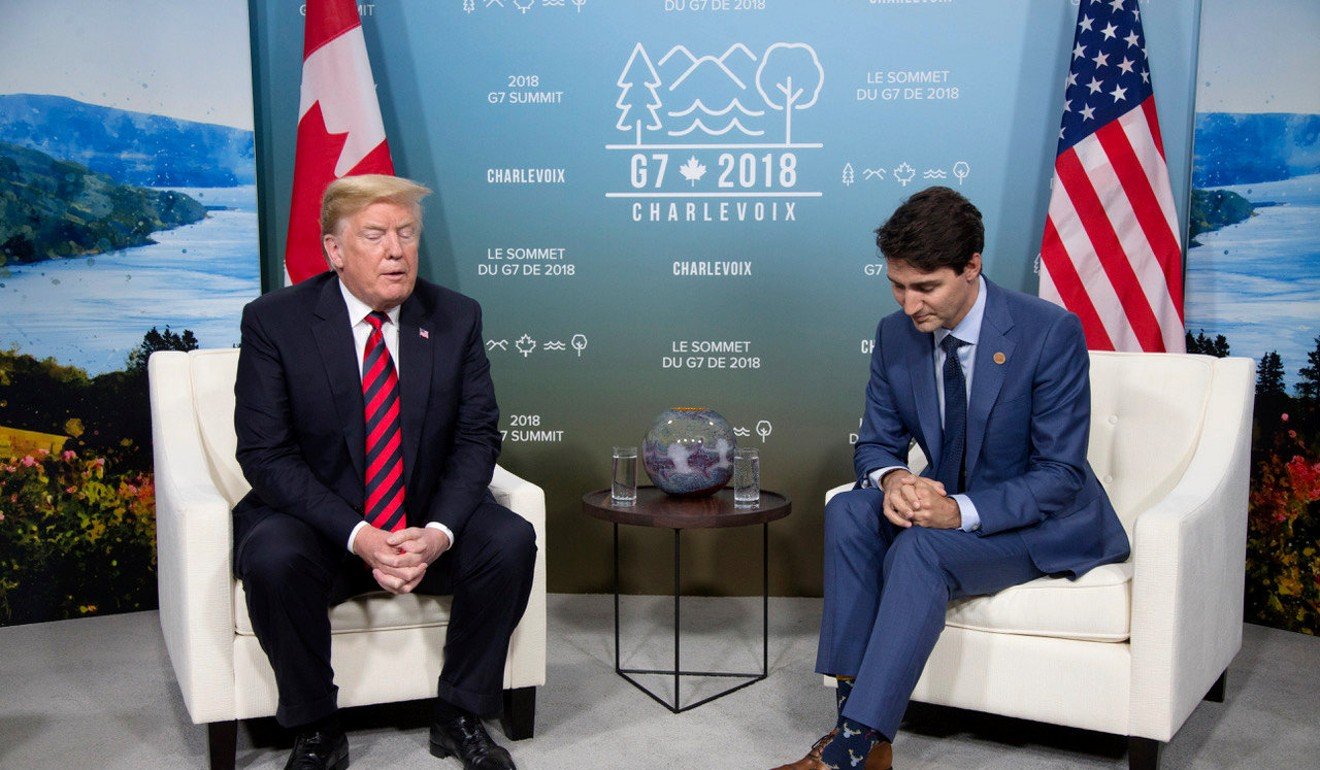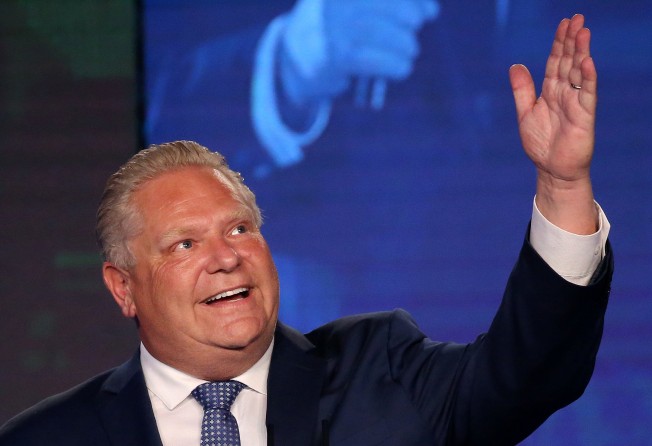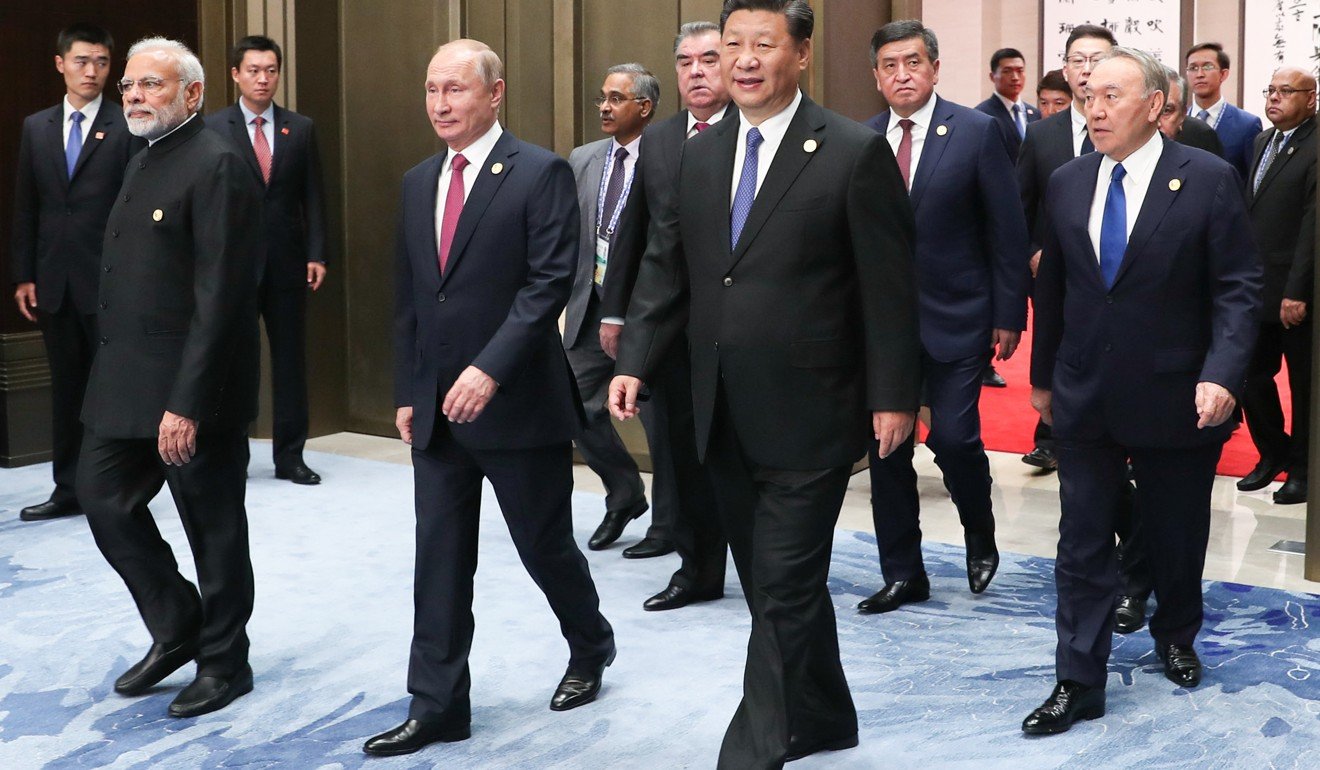
Canada’s own Trump rises as Trudeau spars with The Donald at G7 over the fate of the global order
Robert Delaney says the timing of Trumpian Doug Ford’s election as a regional premier in Ontario is ominous, as the US president continues his assault on the liberal world order

There are bound to be stronger ties between US President Donald Trump and Canada in the days ahead, even after the scorn he showed his host, Canadian Prime Minister Justin Trudeau, at the G7 gathering this past weekend.
How can that be? The answer is Doug Ford, the leader of the Progressive Conservative Party of Ontario, which will take over leadership of Canada’s largest province by both population and economic heft.
As a first order of business, Ford promised a line-by-line audit of government spending and a commission of inquiry to investigate the government of his predecessor, Ontario Liberal Party leader Katherine Wynne, for any possible wrongdoing.
With a scorched-earth approach to politics, the new Ontario premier’s instincts and ideological mindset are thoroughly Trumpian. His eagerness to tarnish his predecessor, a woman with a long track record in politics, isn’t his only similarity with Trump. Ford also:
- Aims to fight legislation and policies aimed at reducing Canada’s carbon emissions;
- Has vowed to cut funding to the Canadian Broadcasting Corporation, or CBC (as a provincial leader, Ford can’t touch a Canadian federal Crown corporation, so his comments on the issue showed a fundamental misunderstanding about the extent of his power);
- Was handed a successful business co-founded by his father, which Ford leveraged to transition into politics;
- Has, throughout his political career, positioned himself as a foil to “downtown elites”;
- Was an integral part of a scandal-plagued administration (Just Google “Rob Ford crack video”).

As Trump spent the weekend taunting leaders of the international economic order established by the United States – finishing off by calling Trudeau “weak” – Ford was no doubt chuckling from the sidelines.
Ford began planning for a political run that he surely hopes will lead to leadership of Canada from Ottawa. And Trump probably had Ford’s political ascendancy in Canada in mind as he was chastising Trudeau, leader of the country’s Liberal Party, and the other G7 leaders, who now must figure out how to sally forth on the global stage without Washington.
Trump characterises his tiff with the G7 as a necessary balancing of financial accounts, but the conflict is much bigger.
As former Australian prime minister Kevin Rudd pointed out in an Asia Society Policy Institute discussion in New York last week, history did not end, as political scientist Francis Fukuyama once contended, with the establishment of a market-centred, rules-based economic order.
In the late 1990s, “there was a massive, secret internal debate among the Communist Party, of whether the game was up”, Rudd told sinologist Orville Schell.
“Are we going to face the end of history, as Fukuyama predicted? Do we need to begin the transition of the Communist Party into a social democratic party, maybe with Singaporean characteristics, rather than submit ourselves to a violent revolution at some stage?
“China resolved that no, it could create its own history. And their own 'end of history' won't be defined by the West.”
Indeed, the model pushed by Washington and the rest of the G7 for the past seven decades is in the midst of a stand-off with the authoritarian, state-led economic model pursued by members of the Shanghai Cooperation Organisation (SCO), which held its annual summit in Qingdao at nearly the same time.

We know where Beijing and Moscow stand on this reordering of global visions. No one outside the Chinese propaganda bubble believes that President Xi Jinping wants free trade as Fukuyama envisioned.
Everything about Trump’s actions and comments suggests he’s on the SCO’s side.
His recent insistence that he has an “absolute right” to pardon himself of anything pinned on him by the US Justice Department’s Special Counsel Robert Mueller puts him more in the mould of Nursultan Nazarbayev, president and “leader of the nation” of Kazakhstan, an SCO founding member, than of Angela Merkel or Emmanuel Macron.
And if Trump’s efforts to antagonise America’s allies continue, perhaps Doug Ford’s Canada might also one day join the SCO.
Robert Delaney is the Post's US bureau chief, based in New York